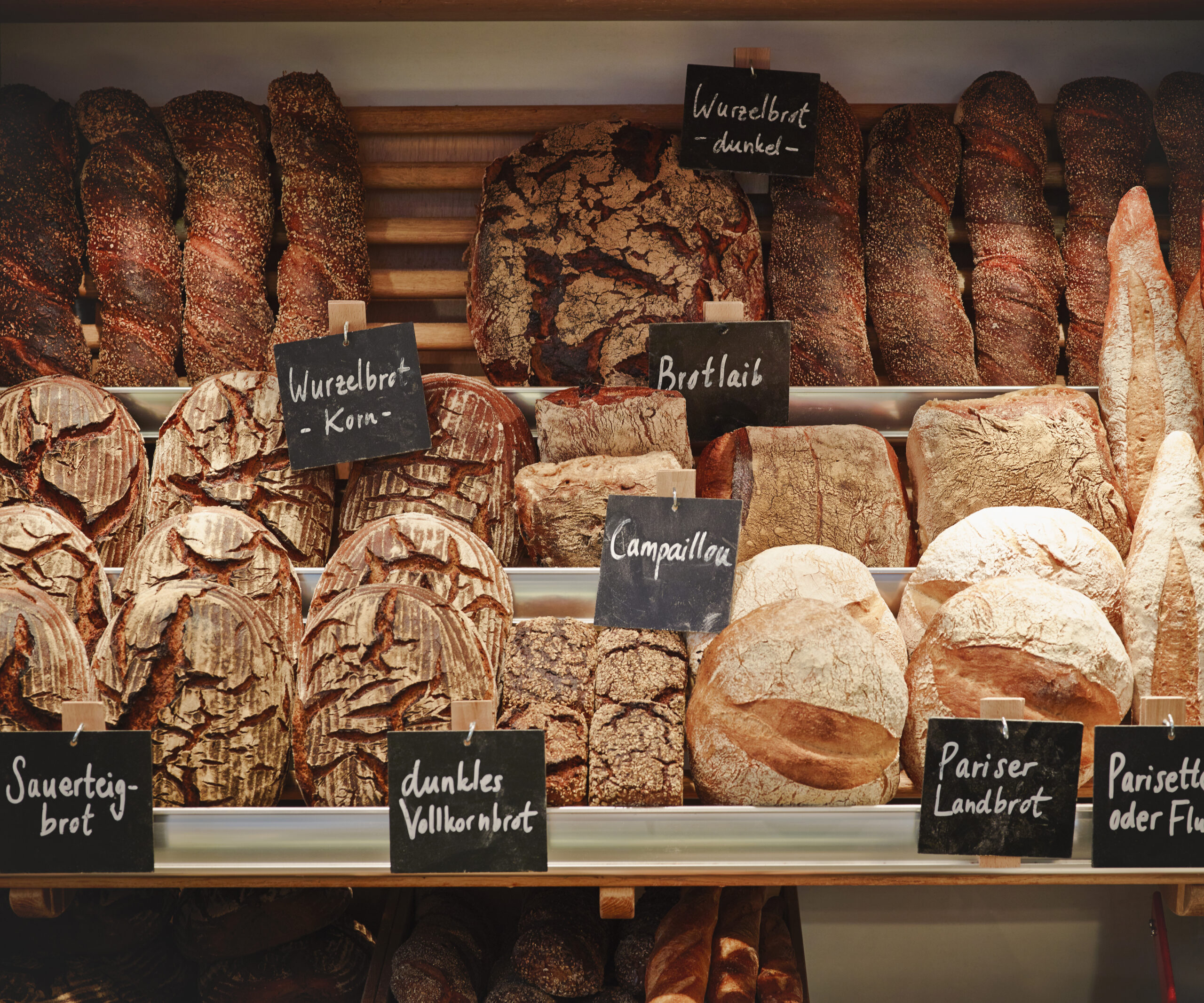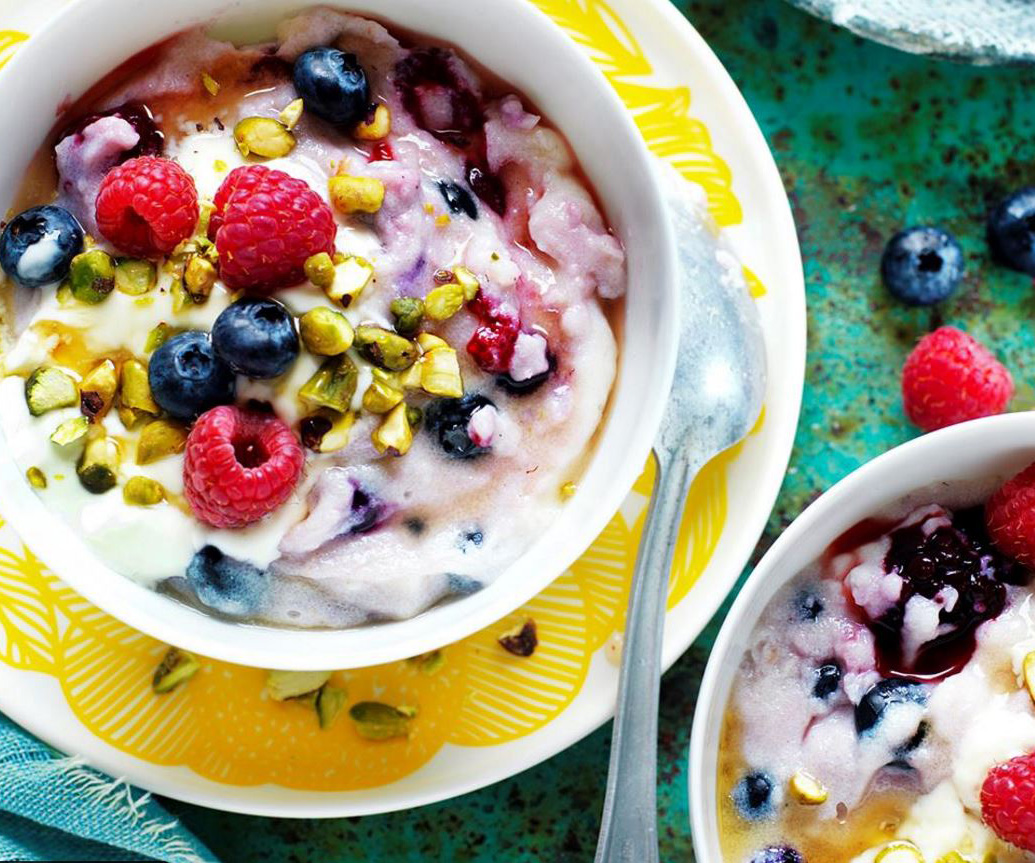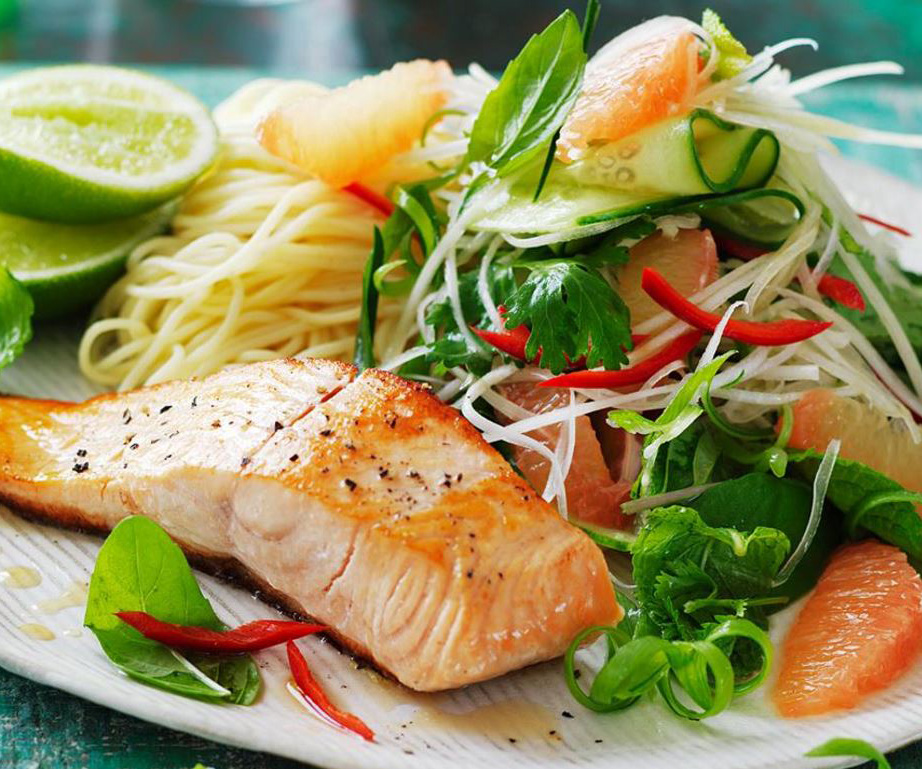Research has shown, time and again, that when it comes to leading a healthy lifestyle, it’s not always about the foods you cut out.
Just like loading up bananas can lower blood pressure and nibbling on Brazil nuts can keep you looking young, there are certain foods you should be stocking up on to ease the effects of menopause.
Whole grains: Tiredness and weight gain are just two of the many symptoms associated with menopause, and whole grains can help both. Complex carbs will balance your sugar levels – cutting out those sharp sugar crashes – and keep you feeling fuller for longer, so you’re less prone to snacking.
Almonds: Got dry skin? It’s time to up your vitamin E intake. This powerful antioxidant protects and repairs your skin as well as being great for bone health and regulating cholesterol. Snack on a 30 g handful during the day, or add them to your cooking.
Turkey: Turns out it’s not just for Christmas. An amino acid called tryptohan – the one that makes you feel sleepy after you’re finished your roast dinner – helps your body to manufacture serotonin, the body’s feel-good hormone. Foods like turkey and cottage cheese can help you feel less irritable and steady your mood.
Yoghurt: All dairy, really. Maintaining bone health is extremely important during menopause, when calcium reserves can be leached from bones. Foods rich in calcium can prevent that, reducing the risk of osteoporosis.
Lentils: Legumes like lentils are a fantastic source of boron, another mineral important for the replacement of bone. Swap out a meat-heavy dish once a week and look for more boron-packed foods like apples, pears and dates.
Kale: Kale, spinach, rocket, broccoli: making sure that you’re getting enough magnesium is another way to ensure healthy bones and ward off osteoporosis during menopause. Magnesium also supports a healthy immune system and boosts heart health, too.
Tofu: Phyto-oestrogens (or plant oestrogens) have been found to bind with oestrogen receptor sites in the body, increasing the overall effect and helping to keep hormones a little more balanced. Soy-based foods like tofu and tempeh are a great source.
Fish: Making fish a twice-weekly part of your diet can reduce the risk of heart disease, which is likely to rise after menopause. Opt for ones bursting with omega-3 fatty acids like salmon and mackerel.
There are some foods you really should try to avoid, though. Coffee, alcohol and spicy foods can trigger hot flushes and night sweats, while foods high in phosphorous like red meat, processed foods and soft drinks can accelerate the loss of calcium and magnesium from bone.
And if you’re in doubt about your diet or have any questions about supplements, check in with your doctor to make sure that you’re running at your happiest, healthiest you.
This story originally appeared on Food to Love.




